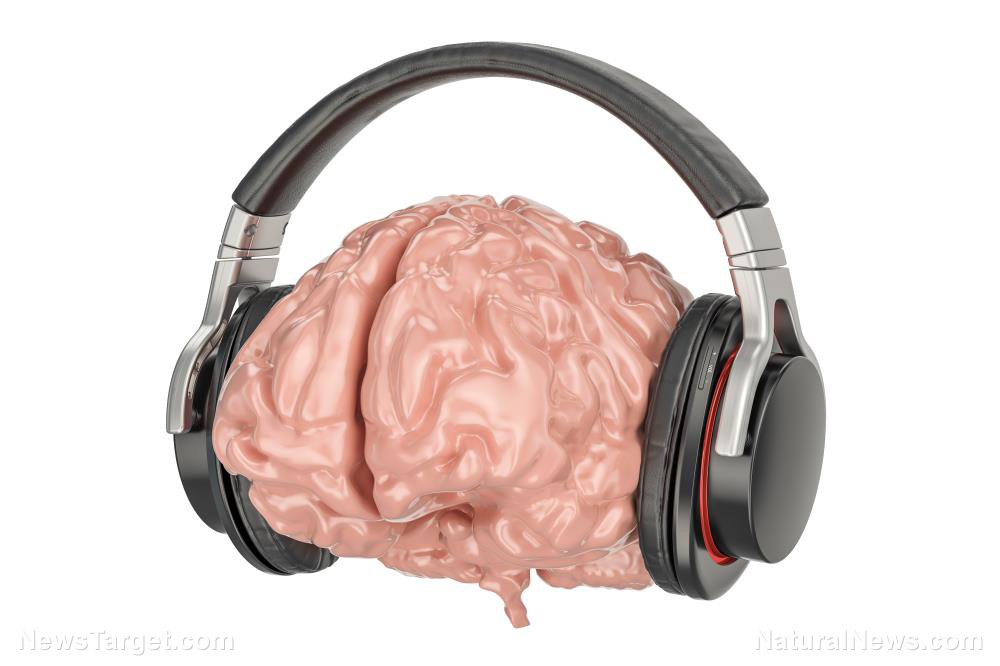Can listening to music help you concentrate better? Experts say NO
12/01/2019 / By Melissa Smith

Many people listen to music while working to help them concentrate and focus on their tasks, but research disagrees with this notion. A study published in the journal Applied Psychology: An International Review revealed that listening to music as you work actually stunts your creativity and keeps you distracted.
In the study, researchers from the University of Gavle in Sweden and the University of Central Lancashire and Lancaster University in the U.K. looked at the effect of background music on performance by giving people “verbal insight problems” that are thought to tap creativity. Background music is an environmental stimulus known to affect cognitive performance, which is said to boost people’s creativity for tasks involving spatial abilities like drawing.
“Creativity is a vital aspect of cognition underpinning activities such as innovative product design, scientific advancement, and effective advertising and marketing communications,” said lead study researcher Dr. Emma Threadgold, of the University of Central Lancashire.
The study’s participants performed tasks, such as puzzles, either in a quiet environment, or while in one of three environments: listening to instrumental music without lyrics; music with foreign lyrics (or unfamiliar lyrics); or music with familiar lyrics.
In all three conditions that involved listening to music, the researchers observed a strong impairment of verbal working memory compared with no noise or under library conditions. The researchers explained that this could be because library noise is a steady-state of environment, which is not as disruptive.
Sponsored: NEW Biostructured Silver First Aid Gel created by the Health Ranger combines three types of silver (ionic silver, colloidal silver, biostructured silver) with seven potent botanicals (rosemary, oregano, cinnamon and more) to create a breakthrough first aid silver gel. Over 50 ppm silver, verified via ICP-MS lab analysis. Made from 100% Texas rain water and 70% solar power. Zero chemical preservatives, fragrances or emulsifiers. See full details here.
In addition, the researchers discovered that even when the music improved the mood of the participants, their creativity remained impaired during the tasks. It also did not matter whether the participants usually studied with music in the background.
Taken together, the researchers concluded that background music dramatically impaired the participants’ ability to accomplish tasks testing verbal creativity. The study’s findings challenged the popular belief that music boosts creativity, and instead showed that music consistently impairs creative performance in verbal insight problem-solving.
Other ways that music affects the brain
Music affects the brain in many ways. As mentioned earlier, listening to music did improve the mood of the participants. Other studies also report that music can affect a person’s mood. Two experimental studies by researchers from the University of Missouri examined whether listening to upbeat music can increase a person’s feelings of happiness. Both studies found that listening to upbeat music can improve levels of happiness, especially when it is combined with an intention to become happier.
Music also elicits emotions, depending on the type of music. A study published in the Journal of Consumer Research suggested that people tend to listen to music depending on their current emotions, such as listening to melancholic music when they are sad. For many, this serves as an empathetic friend and helps them feel better.
Listening to music also influences pleasure. A study published in the journal Nature Neuroscience revealed that when you listen to music, your brain releases dopamine. This neurotransmitter is linked to reward and motivation. Therefore, listening to music can be pleasurable. The study also found that even the anticipation of listening to music can trigger dopamine release.
Finally, music helps improve mental conditions, such as depression and anxiety, according to a review published in the journal Mental Health Practice. This review suggested that music therapy effectively reduced anxiety and confusion in people with dementia and improved their quality of life. (Related: Music therapy helps reduce depression and increases self-esteem.)
No matter your reason for listening to music, it is an effective brain stimulator. Visit MindBodyScience.news to learn more about the effects of music on cognition.
Sources include:
Tagged Under: background music, Brain, brain function, brain performance, cognitive function, concentration, creativity, focus, mood, moods, music, research, stress, stress relief



















